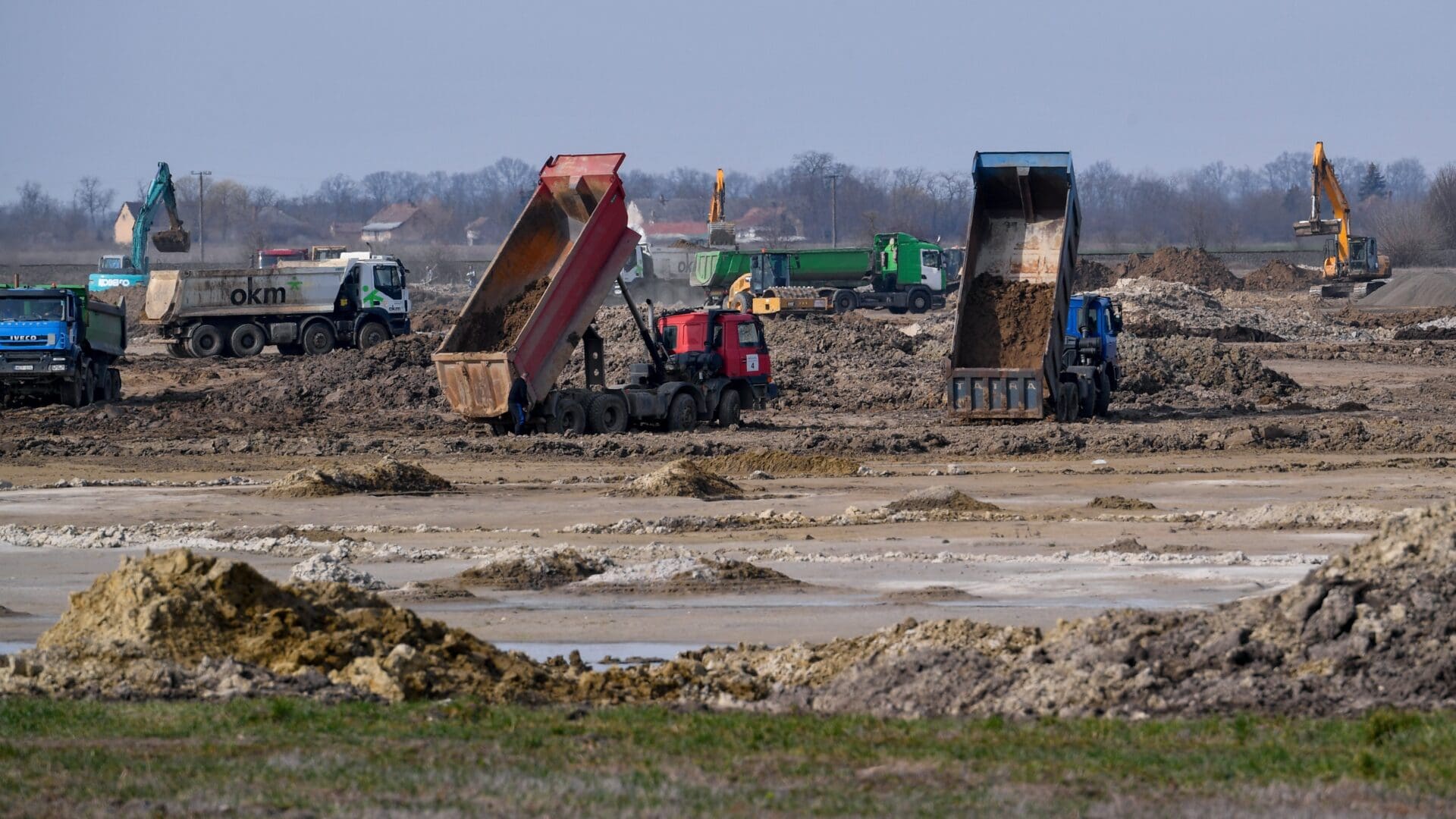The Debrecen Court of Justice must once again decide whether to halt the construction of the Chinese CATL battery factory due to environmental concerns. The Budapest Court of Appeal, in its recent ruling, overturned a previous decision by the court that denied the request to stop the 3 trillion Hungarian forint investment by the Chinese giant.
According to information obtained by 24.hu, the environmental permit of CATL, which has significant water and energy requirements,
was challenged in court by six private individuals and two civil organisations.
One of the individuals requested not only the revocation of the permit but also immediate legal protection, which means that CATL should not be allowed to continue construction during the trial.
On 13 February, the Hajdú-Bihar County Government Office announced that the joint environmental impact assessment and unified environmental permit procedures initiated by the Chinese company had been completed, and the permit had been granted, essentially giving the green light to the investment. The issuance of the permit further fuelled the protests against the factory. The residents of the settlements near the industrial park held numerous demonstrations in Debrecen, and opposition parties also began to take action.
One of the property owners in the vicinity of the CATL battery factory, Gyula Moczok, is trying to challenge the factory’s investment through legal means. Moczok’s house is located just under two kilometres away from the future battery plant. Moczok, who was previously a local district chairman for the Hungarian Socialist Party (MSZP), submitted a lawsuit prepared by András Litresits, often referred to as the ‘star lawyer of the Left’ in the conservative media in Hungary. The lawsuit includes a detailed environmental impact assessment, requesting a reconsideration of the environmental permits issued by the Government Office and the disaster management authority.
The Budapest Court of Appeal
objected to the rejection of the immediate legal protection requested by Gyula Moczok,
stating that ‘the lower court did not consider the direct risk to the security of water supply during peak periods in Debrecen.’
In reaching a new ruling, the lower court must consider, in accordance with the principle of proportionality and taking into account the public interest and the interests of all parties involved, whether the absence of immediate legal protection would cause more significant harm than providing such protection.
Related articles:








